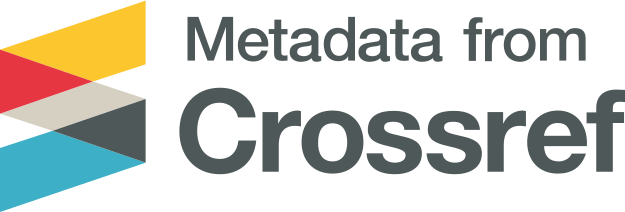Praktik Akuntansi Manajemen pada Usaha Mikro, Kecil, Menengah di Indonesia
DOI:
https://doi.org/10.35838/jrap.2022.009.01.10Keywords:
Perencanaan, Pengendalian, Keputusan, Kinerja, UMKMAbstract
ABSTRACT
The existence of Micro, Small and Medium Enterprises (MSMEs) in Indonesia plays a very important role in economic growth and therefore MSMEs need to be managed properly through management accounting practices so it will have a good performance and can still exist as well as compete in the industrial revolution 4.0 era. This study aims to determine the practice of management accounting on MSMEs in Bandung city and its effect on the performance of MSMEs. The approach used in this research are descriptive and verification. The data are primary data obtained by distributing questionnaires to MSMEs in Bandung , Indonesia. Samples were determined by using random sampling of 167 MSMEs in Bandung. The methods for data analysis are regression and hypothesis testing. The results of the study concluded that MSMEs in Bandung had implemented management accounting practices was done by planning, controlling and decision making. The form of planning and control in the sufficient category. Decision-making in the good category and performance in the sufficient category. This study also concludes that planning, controlling and decision-making have a significant effect on the performance of MSMEs with management accounting knowledge as a moderating variable.
ABSTRAK
Usaha mikro, kecil, menengah (UMKM) di Indonesia mempunyai peran penting dalam mendukung perekonomian, sehingga dalam pengelolaan diperlukan praktik akuntansi manajemen yang baik untuk menunjang pencapaian kinerja usaha yang maksimal. Praktik akuntansi manajemen yang baik juga diperlukan untuk menyesuaikan perkembangan revolusi industri 4.0. penelitian ini bertujuan untuk mengeksplorasi praktik akuntansi manajemen pada UMKM di Kota Bandung dan pengaruhnya terhadap kiner UMKM. Penelitian ini menggunakan pendekatan deskriptif dan verifikatif dengan menggunakan data primer yang diperoleh melalui penyebaran kuesioner. Populasi penelitian adalah UMKM yang ada di Kota Bandung. Jumlah sampel adalah 167 UMKM kota Bandung dengan teknik penentuan sampel yaitu simple random sampling. Metode analisis data yang digunakan adalah regresi dan uji hipotesis. Hasil penelitian menunjukkan bahwa UMKM di kota Bandung mengimplementasikan akuntansi manajemen melalui proses perencanaan, pengendalian dan pengambilan keputusan dan disimpulkan bahwa proses perencanaan dan pengendalian dalam katagori cukup dan pengambilan keputusan dalam katagori baik. Kinerja usaha pada UMKM tergolong cukup. Penelitian ini juga menyimpulkan bahwa perencanaan, pengendalian, dan pengambilan keputusan berpengaruh signifikan terhap kinerja UMKM dengan variabel pengetahuan akuntansi manajemen sebagai variabel moderasi.
Downloads
References
Abdullah, M.; Zailani, S.; Iranmanesh, M.; Jayaraman, K. (2016). Barriers to green innovation initiatives among manufacturers: The Malaysian case. Rev. Manag. Sci., 10, 683–709
Abubakar, A. M., Elrehail, H., Alatailat, M. A., & Elçi, A. (2019). Knowledge management, decision-making style and organizational performance. Journal of Innovation & Knowledge, 4(2), 104-114.
Ahmad, K. (2012). The Use of Management Accounting Practices in Malaysian SMEs. Retrieved July 15, 2013, from http://eprints.uthm.edu.my/4639/1/Kamilah _Ahmad. pdf
Armitage, H. M., Webb, A., & Glynn, J. (2016). The use of management accounting techniques by small and medium‐sized enterprises: a field study of Canadian and Australian practice. Accounting Perspectives, 15(1), 31-69.
Azudin, A., & Mansor, N. (2018). Management accounting practices of SMEs: The impact of organizational DNA, business potential and operational technology. Asia Pacific Management Review, 23(3), 222-226.
Bieńkowska, A. (2020). Controlling Effectiveness Model-empirical research results regarding the influence of controlling on organisational performance. Engineering Management in Production and Services, 12(3).
Biju, P. A., & Bhasi, M. (2014, December). A structural equation model linking forecasting, planning and controlling with SME performance. In 2014 IEEE International Conference on Industrial Engineering and Engineering Management (pp. 531-535). IEEE.
Charles T. Hogren, Srikant M. Datar, Madhav V. Rajan. 2015. Cost Accounting: A Managerial Emphasis. Fifteenth Edition. Pearson Education Limited.
Dewi, L. M. (2017). PENGARUH PENERAPAN AKUNTANSI MANAJEMEN TERHADAP KINERJA UMKM (Studi Empiris pada UMKM Batik di Tamansari, Yogyakarta) (Doctoral dissertation, UAJY).
Edward Freeman. (2010). Stakeholders Theory- What is Stakeholder Theory? In the landbook book, Strategic Management: A Stakeholder Approach. https://www.stakeholdermap.com/stakeholder-theory-freeman.html
Frima, R., & Surya, F. (2018). Pengaruh Tingkat Pendidikan dan Penggunaan Informasi Akuntansi Manajemen Terhadap Kinerja UMKM di Kota Padang. Akuntansi dan Manajemen, 13(1), 93-111.
Ismail, K., & Isa, C. R. (2011). The Role of Management Accounting Systems in Advanced Manufacturing Environment. Australian Journal of Basic and Applied Sciences, 5(9), 2196-2209.
Jiambalvo, James (2013). Managerial Accounting. Fifth Edtion. John Wiley & Sons, Inc.
Kamal, B. (2021). PENGARUH KOMPETISI DAN SISTEM AKUNTANSI MANAJEMEN TERHADAP KINERJA MANAJERIAL UMKM TEGAL. Monex: Journal of Accounting Research, 10(1), 55-63
Kurniawan Aceng dan Citra Nensih (2014) . Pengaruh Pemanfaatan Informasi Dan Saling Ketergantungan terhadap Karakteristik Informasi Akunatnsi Manajemen serta Dampaknya terhadap Kinerja Manajeriar. STAR Study & Accounting Research Volume XI No.1. hal 52-67.
Lestari, M. D., Kantun, S., Hartanto, W., Suharso, P., & Widodo, J. (2020). Analysis of the financial literacy level of Micro, Small and Medium Enterprises (MSMEs) in Jember, East Java, Indonesia. IOP Conference Series: Earth and Environmental Science, 485(1).
Nurabiah, N., Pusparini, H., & Mariadi, Y. (2020). Contingent Factors Affecting of Implementation Management Accounting Practices in Micro, Small & Medium (MSMEs) in Mataram City. Jurnal Aplikasi Akuntansi, 5(1), 72 -89.
Oliver Berthod. (2018). Institutional Theory of Organization. In book: Global Encyclopedia of Public Administration, Public Policy, and Governance (pp.1-5)
Rozainun Abdul Azis, Che Hamidah Che Puteh, Indra Devi Rajamanoharan, Nagarethnam Thirumanickam. (2019). Management Accounting. Third Edition. Oxford University Press.
Rudiantoro, R. Siregar, S.V. (2012). Kualitas Laporan Keuangan UMKM serta Prospek Impelemntasi SAK ETAP. Jurnal Akuntansi dan Keuangan Indonesia. 9 (1). : 1 – 21.
Sigilipu, Steffi. (2013). Pengaruh Penerapan Informasi Akuntansi Manajemen Dan Sistem Pengukuran Kinerja Terhadap Kinerja Manajerial. Jurnal EMBA Vol.1 No.3 Juni 2013.
Soemohadiwidjojo, Arini T. (2018). SOP dan KPI Untuk UMKM dan Startup. Jakarta: Raih Asa Sukses (Penebar Swadaya Grup)
Varma Arup and Pawan Budhwar. (2019). Perfoarmance Management Systems: An Experiential Approach. Sage publications.
Wijethilake, C., Munir, R., & Appuhami, R. (2018). Environmental innovation strategy and organizational performance: Enabling and controlling uses of management control systems. Journal of Business Ethics, 151(4), 1139-1160.
Yakhou, M., & Dorweiler, V. P. (2004). Environmental accounting: an essential component of business strategy. Business Strategy and the Environment, 13(2), 65-77.
Zaleha S., Rasid A., Rahim A., Rahman A. (2009). Management Accounting and Risk Management Practise in Financial Institutions. Jurnal Teknologi. 51 (E) : 89-110
UU No 20 tahun 2008 tentang UMKM
https://www.bi.go.id Profil Bisnis UMKM diunduh pada tanggal 19 Agustus 2020
Downloads
Published
Issue
Section
License
Authors who publish with this journal agree to the following terms:
- Authors retain copyright and grant the journal right of first publication with the work simultaneously licensed under a Creative Commons Attribution-ShareAlike 4.0 International License that allows others to share the work with an acknowledgement of the works authorship and initial publication in this journal.
- Authors are able to enter into separate, additional contractual arrangements for the non-exclusive distribution of the journals published version of the work (e.g., post it to an institutional repository or publish it in a book), with an acknowledgement of its initial publication in this journal.
- Authors are permitted and encouraged to post their work online (e.g., in institutional repositories or on their website) prior to and during the submission process, as it can lead to productive exchanges, as well as earlier and greater citation of published work (See The Effect of Open Access).














